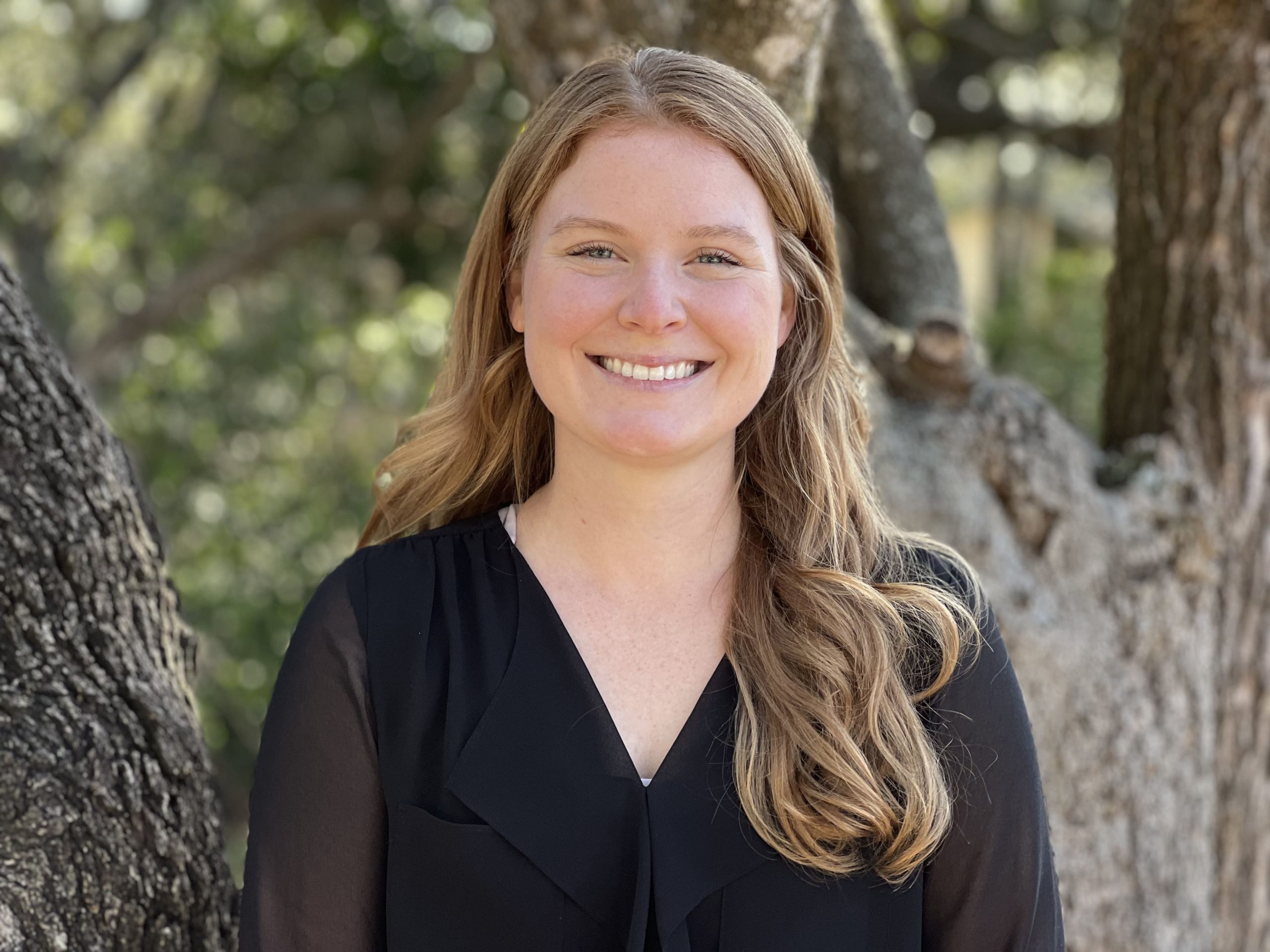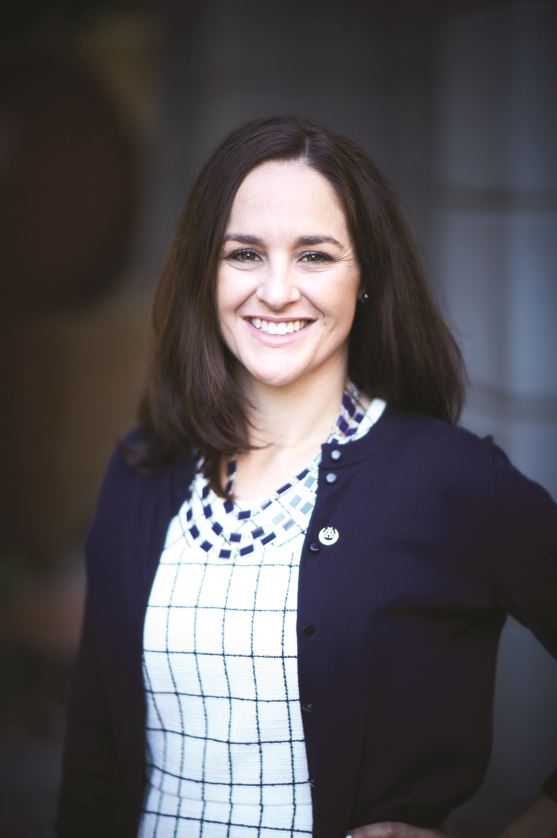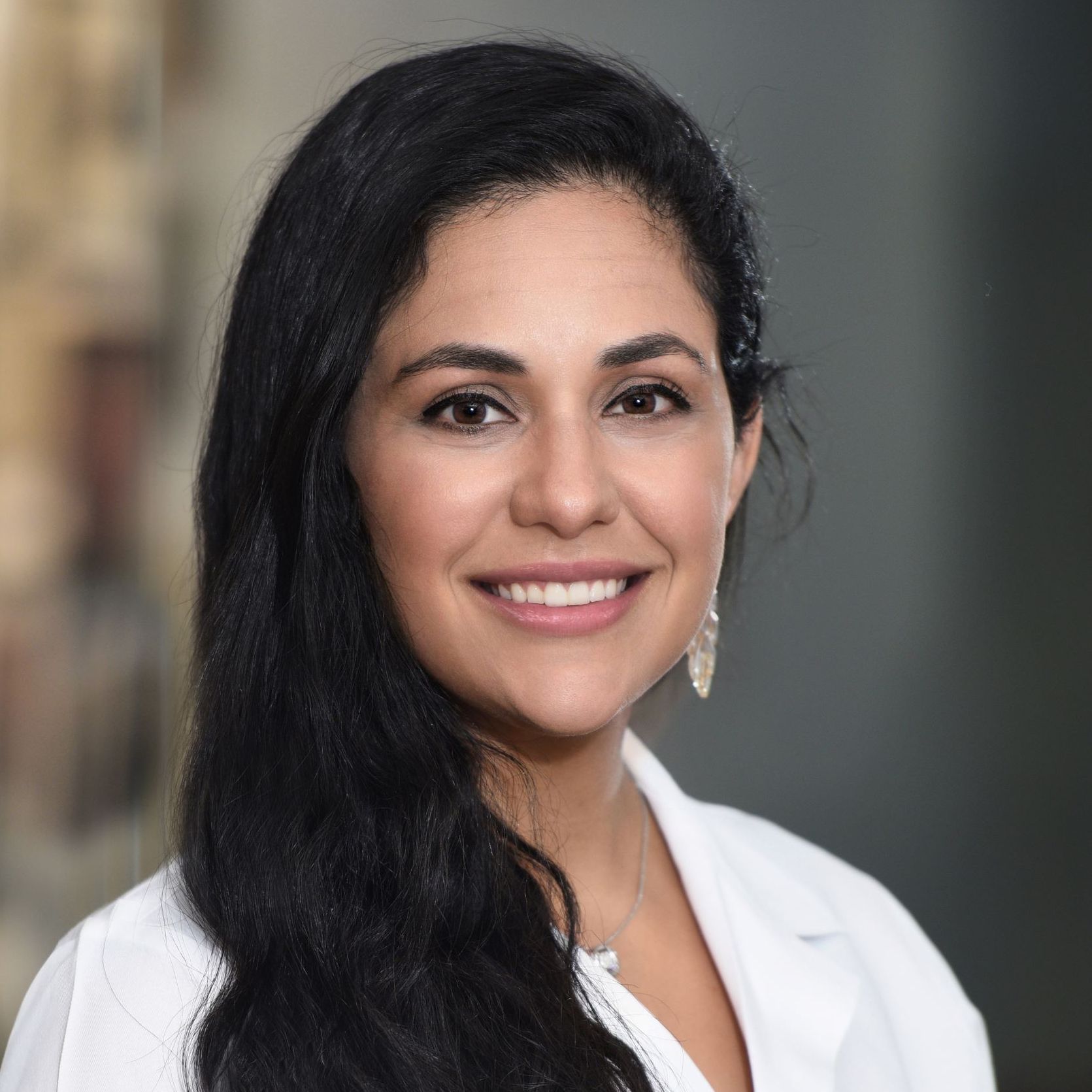
Megan Kalinich, PT, DPT
Visit types: Office
Spoken languages: English
Interpreting services for other languages: No
What you should know about me:
Megan Kalinich received a Bachelor of Science in Biology & Society from Arizona State University in Tempe, AZ. She received her Doctorate in Physical Therapy from Creighton University in Omaha, NE.
Megan has had an interest in pelvic health physical therapy from the beginning of her physical therapy education as she pursued additional academic training during her physical therapy schooling at Creighton University. She has worked at multiple practices in the Austin area where she was able to develop her skills in both pelvic and orthopedic physical therapy. Throughout this time, her passion has continued to grow for the pelvic health population. She enjoys assisting her patients in overcoming their symptoms and helping them to become empowered through knowledge.

Makenzie Cochran, PT, DPT
Visit types: Office
Spoken languages: English
Interpreting services for other languages: No
What you should know about me:
Makenzie graduated from The University of Texas at Austin with a Bachelor of Science in Communication Studies and minor in Business in 2015. After graduating she spent time serving the Austin community through nonprofit work before deciding to pursue a career in physical therapy, and in 2021 she received a Doctorate in Physical Therapy from the University of Texas Health Science Center at San Antonio.
Makenzie became interested in pelvic health while observing at Sullivan Physical Therapy during graduate school and has since sought to increase public awareness and knowledge of pelvic floor therapy in hopes of improving patient access and care. She is committed to being an advocate for her patients and strives to empower them to be autonomous in their health journey through continued education.
Makenzie is a member of the American Physical Therapy Association as well as their Section on Women’s Health. She has completed continuing education on pelvic floor diagnoses and treatments, as well as specific courses in myofascial release.

Kimberlee Sullivan, PT, DPT, WCS, BCB-PMD
Visit types: Office
Spoken languages: English
Interpreting services for other languages: No
What you should know about me:
Kimberlee Sullivan graduated with a Bachelor of Science Degree in Sports Medicine from Pepperdine University. She received a Doctorate in Physical Therapy from Creighton University. Since her clinical affiliation Kimberlee has focused her profession on pelvic floor dysfunction.
She has worked with orthopedic and pelvic health patients for twenty years in states such as Oregon, Minnesota, and Texas. In October of 2005 she opened Sullivan Physical Therapy where she could focus on patients with pelvic floor dysfunction such as incontinence, overactive bladder syndrome, interstitial cystitis, organ prolapse, sciatica and pelvic pain.
Kimberlee is a member of the American Physical Therapy Association, Orthopedic and Women’s Health Sections. She is also a member of the National Association for Continence, Endometriosis Association, Interstitial Cystitis Association, National Vulvodynia Association, International Pelvic Pain Society, Texas Physical Therapy Association and the International Society for the Study of Women’s Sexual Health.
Kimberlee is board certified in Women’s Health Physical Therapy by the American Board of Physical Therapy Specialists. She is a recipient of the Certificate of Achievement in Pelvic, Pregnancy and Postpartum Physical Therapy by the Section of Women’s Health. She has received certification by the Biofeedback International Conference for Pelvic Biofeedback.

Julianne Simpson, PT, DPT
Visit types: Office/Hospital
Spoken languages: English, some French
Interpreting services for other languages: No
Philosophy of care and typical treatment strategies:
I provide trauma-informed and inclusive care for people of all genders. I use visceral mobilization, fascial work, education, Postural Restoration Institute theories, pain science education, and listening to help people move better and participate in what they love.
Dr. Lawrence Sullivan
Dr. Lawrence Sullivan, Endometriosis Specialist, Gynecologist
City: Enosburg Falls, Vermont, USA

Dr. Benjamin Beran
Dr. Benjamin Beran, Endometriosis Specialist, Gynecologist, Minimally Invasive Gynecologic Surgeon
City: Milwaukee, Wisconsin, USA

Melanie Carminati, PT, DPT
Visit types: Office/Hospital;Virtual
Spoken languages: English, Spanish, Russian
Interpreting services for other languages: No
Philosophy of care and typical treatment strategies:
Pelvic Floor Physical Therapy
Visceral Manipulation
Craniosacral Therapy
Pilates Lessons
Massage Therapy
Orthopedics
Endometriosis Specialists

Lori O’Neill, PT, DPT
Visit types: Office/Hospital;
Spoken languages: English
Interpreting services for other languages: No
Philosophy of care and typical treatment strategies:
I have found that working with a holistic, team approach is essential for people experiencing any concern or suspicion of endometriosis. There is not one discipline that can cover the needs of such a complex and uniquely presenting disease process throughout a lifetime. My role is to expand and improve on a diverse set of knowledge by regularly attending continuing education specific to endometriosis and pelvic pain syndromes.
Advanced internal and general manual therapy techniques such as myofascial release, visceral manipulation and autonomic nervous system regulation are frequently implemented. Lifestyle medicine concepts may include finding the right type of movement/fitness and conservative pain management to allow the patient to achieve their goals. My patient-centered soft skills are being empathetic, trauma-informed, humorous with an intuitive approach.
What should be known about you:
Over the course of a 25+ year career as a Pelvic Health PT, I have had the privilege of training and collaborating with world-renowned experts in pelvic PT, pain management, MIGS, midwifery and functional medicine. My resourcing reach goes beyond local communities to the leaders in the endometriosis treatment and birthing community for current, evidenced-based and complimentary therapies. Promoting awareness for early diagnosis and proactive treatments for fertility preservation are areas of special interest. I am the owner of a private practice with locations in Chapel Hill and Raleigh, NC. For more information, visit www.VitalityPT.org

Dr. Stephanie Delgado
Dr. Stephanie Delgado, Endometriosis Specialist, Gynecologist, Minimally Invasive Gynecologic Surgeon
City: Miami, Florida, USA

Sarah Woodward, PT, DPT
Visit types: Office/Hospital; At home; Virtual
Spoken languages: English
Interpreting services for other languages: No
Philosophy of care and typical treatment strategies:I prioritize patient-physical therapist collaboration in treating all of my patients, and especially my patients with endometriosis as this disease can impact each person so differently.
I do have extensive training in the implementation of many manual treatments including fascial mobilization, visceral manipulation, myofascial release, trigger point release, and various types of joint mobilizations that we can utilize to reduce pain and improve motion. I use functional movement, breath techniques, and positional strategies to help you get through the bad days, and also provide individualized progressive strengthening/stretching/
I take my role as an educator very seriously. I will teach you as much as I can to help you manage the musculoskeletal aspects of your symptoms including unwanted pelvic floor symptoms (such as incontinence, pain with sex, painful bladder syndrome, or constipation), joint pains, muscle pains, fatigue, and bloating.
My goal is to help you progress toward the things that are most important to you wherever you are in your endometriosis journey.
I would be honored to be part of your medical team.

Dr. Nicholas Hazen
Dr. Nicholas Hazen, M.D.
Dr Nicholas Hazen – Endometriosis Specialist, Gynecologist, Minimally Invasive Gynecologic Surgeon
Summary: Dr Nicholas Hazen MD, a renowned endometriosis specialist and gynecologist based in Washington DC, USA, is dedicated to providing personalized care for women dealing with endometriosis. Dr Hazen understands that the disease process is still not fully understood, and he combines scientific evidence with personal experience to tailor treatment for each patient. When surgery is required, he favors an excisional approach with wide margins to ensure the best possible outcomes.
In managing endometriosis, Dr Nicholas Hazen MD uses a range of treatments, including progestational agents, GnRH antagonists, NSAIDs, and gabapentinoids. He emphasizes a holistic approach, recognizing the importance of diet and mental health in managing pain. For patients experiencing persistent pain after surgery, Dr. Hazen customizes treatment plans to meet each individual’s needs, working closely with them to extend pain relief and improve quality of life.
City: Washington DC, USA
Philosophy: I believe there is still more that is unknown than known about the disease process of endometriosis. Quality scientific evidence supports multiple current etiologies, suggesting that endometriosis is not a simple process with a simple solution. My approach to surgical treatment is based on my most up to date understanding of the disease process, in combination with my personal experience caring for patients along their unique health journeys. When surgery is warranted, I favor an excisional approach with wide margins to include both visible and surrounding microscopic disease. In my experience, this leads to the best outcomes for patients.
Medication: The choice of medication for the management of endometriosis is an extremely individual one. Finding the best fit for a patient requires reviewing both their current status and past history very thoroughly, including their previous experiences, the evolution of their symptoms, and their individual management goals. In my practice, I most commonly prescribe progestational agents but often recommend GnRH antagonists. The current literature shows that suppression results in decreased return of pain and symptoms following endometriosis surgery, and I often recommend and manage post-surgical resection hormonal suppression. I use non-narcotic medications such as NSAIDS for the treatment of pain and gabapentinoids and SNRI/SSRIs for central sensitization. I believe that diet and mental health also play an important role in the body’s pain response to endometriosis.
Approach to Persistent Pain After Surgery: I believe there is no single “right” approach to addressing continued pain after surgery. Every patient is different, and so is each surgery, so it is critical to individualize treatment plans based on a patient’s unique needs. It has been widely shown that for the majority of patients, the pain relief experienced from surgery is unfortunately only temporary. In the continued care of my patients, my goal is always to work together to extend pain relief as long as possible and minimize impacts and disruptions to the patient’s life going forward.

Michele Forsberg PT, MS
Visit types: Office/Hospital.
Spoken languages: English
Interpreting services for other languages: No
Philosophy of care and typical treatment strategies: I take a holistic approach to treating all patients, including those with endometriosis. I utilize a wide range of manual techniques including visceral and neural mobilization, craniosacral therapy, myofascial release, scar tissue mobilization, trigger point dry needling, yoga therapy, pelvic floor therapy, trigger point release, meditation/visualization, and breath work. Patients are treated with respect and included in their plan of care decisions.

